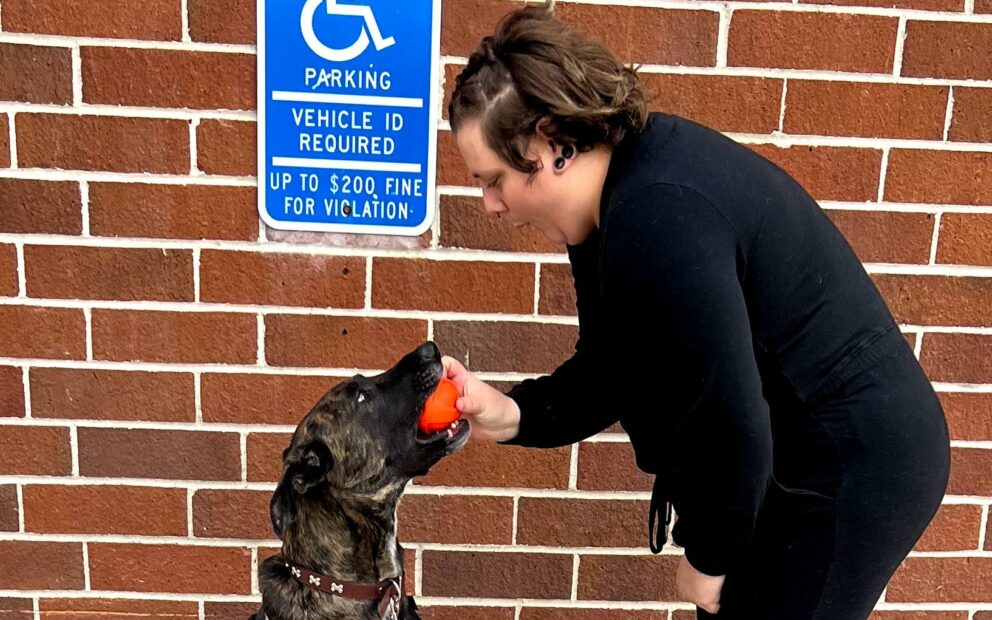Saying no to service animal means salon has to pay

Out of high school, Josie LaBonne made the career decision to train dogs to be service animals. But had no idea that the first and only dog she trained would be for herself.
On the way to celebrate her 19th birthday, Josie was in a car accident. As the passenger in the car that took the brunt of the impact, her head slammed into the dashboard. Diagnosed with a concussion, she soon was plagued with seizures, enduring them at least twice, daily. “It took me six months to get an appointment with a neurologist.”
And when she did? “They told me, I had juvenile myoclonic epilepsy. A condition I apparently had since birth. But it was the accident that triggered the seizures.” Life as Josie knew it, stopped. But a new one, in which Jack-Jack became her constant companion, began.
Jack-Jack has been trained to detect the slightest change the smell of Josie’s breath and nudge her to sit down when that change signals a seizure coming on. “My service dog to me is like my oxygen. You wouldn’t try to pet my oxygen tank or turn it off or tell me I’m not allowed to have it.”
Yet, that’s what happened. When she entered a St. Paul nail salon, three years ago, the manager yelled at her and made her leave.
Josie knew it was wrong and she also knew the word ‘pro bono,’ so she called attorney after attorney until one finally took her case. At the same time, the Minnesota Department of Human Rights investigated. When they recommended conciliation and the salon refused, her private pro bono attorney asked if she had considered Legal Aid.
“I hadn’t heard of Legal Aid, but once I did, I learned about the Minnesota Disability Law Center.” That’s when Attorney Sonja Peterson entered the picture.
“After the salon turned down the offer of conciliation, offered by the Department of Human Rights, we pursued mediation. That’s when the salon agreed to settle.” Peterson explained. “The salon finally recognized the costs involved in mediation and probably acknowledged that there was a good likelihood they would be found liable for this discriminatory conduct.”
After facing this legal challenge, Josie says she feels good knowing, “More employees will get training. They’ll get an understanding of the American with Disabilities Act (ADA) and they’ll learn how to accommodate a person with a service animal.” And though she can’t go to school or work, she finds each day in her disability community with Jack-Jack to be fulfilling.
“I was a foster kid. My fondest memories are of YMCA Camp Warren for kids like me. The camp raised me and I’ll always remember my counselor, Sally. She said, ‘Get up every morning and face every challenge.’ Sounds like such a simple thing. But it’s what keeps me going.”

